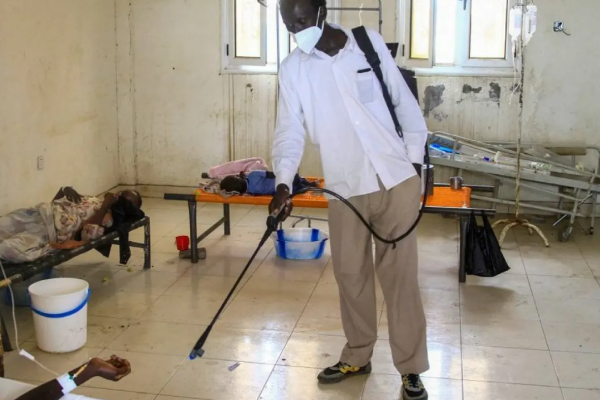A cholera outbreak in Sudan has killed over 170 people in a week, according to health officials, amid a collapse of basic infrastructure following more than two years of deadly conflict.
Sudan’s health ministry recorded more than 2,700 illnesses and 172 deaths in one week, with Khartoum state accounting for 90 percent of the cases.
The capital’s water and electricity supply has been badly affected in recent weeks by drone strikes blamed on the paramilitary Rapid Support Forces (RSF), which have been at war with the army since April 2023.
Cases were also reported from the country’s south, center, and north.
Cholera is widespread in Sudan, but outbreaks have gotten much worse and more frequent since the war began, wreaking havoc on the country’s already vulnerable water, sanitation, and health facilities.
Last Tuesday, the ministry said that 51 individuals had died from cholera out of almost 2,300 documented cases in the previous three weeks, with Khartoum accounting for 90 percent of those.
Read Also
The RSF launched drone strikes around Khartoum this month, including on three power plants, before being forced to abandon their final holdout positions in the capital last week.
According to Doctors Without Borders (MSF), the strikes knocked out the electricity and then the local water network, leaving locals to rely on contaminated water sources.
According to a doctor at Omdurman’s Al-Nao hospital, the capital’s main functioning health facility, residents have resorted to Cdrinking untreated Nile water, after the shutdown of water pumping stations,” which he said “is the main reason for the rapid spread” of cholera.
Medics in the already overwhelmed hospital are struggling to keep pace with the outbreak, and the local emergency response room (ERR) has issued a call for more volunteers.
Cholera, an acute diarrhoeal illness caused by ingesting contaminated water or food, can kill within hours if untreated.
Yet it is easily preventable and treatable when clean water, sanitation and timely medical care are available.
Sudan’s already fragile healthcare system has been pushed to “breaking point” by the war, according to the World Health Organization.
Up to 90 percent of the country’s hospitals have at some point been forced to close because of the fighting, according to the doctors’ union, with health facilities regularly stormed, bombed and looted.
The war, now in its third year, has killed tens of thousands, displaced 13 million and created the world’s largest displacement and hunger crisis.





